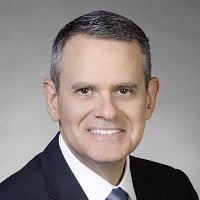ETFs Are Hot, But Are They the Right Investment for You?
The younger cousin to mutual funds, exchange-traded funds (ETFs) offer some convenient advantages, like lower fees and greater tax efficiency.


Profit and prosper with the best of Kiplinger's advice on investing, taxes, retirement, personal finance and much more. Delivered daily. Enter your email in the box and click Sign Me Up.
You are now subscribed
Your newsletter sign-up was successful
Want to add more newsletters?

Delivered daily
Kiplinger Today
Profit and prosper with the best of Kiplinger's advice on investing, taxes, retirement, personal finance and much more delivered daily. Smart money moves start here.

Sent five days a week
Kiplinger A Step Ahead
Get practical help to make better financial decisions in your everyday life, from spending to savings on top deals.

Delivered daily
Kiplinger Closing Bell
Get today's biggest financial and investing headlines delivered to your inbox every day the U.S. stock market is open.

Sent twice a week
Kiplinger Adviser Intel
Financial pros across the country share best practices and fresh tactics to preserve and grow your wealth.

Delivered weekly
Kiplinger Tax Tips
Trim your federal and state tax bills with practical tax-planning and tax-cutting strategies.

Sent twice a week
Kiplinger Retirement Tips
Your twice-a-week guide to planning and enjoying a financially secure and richly rewarding retirement

Sent bimonthly.
Kiplinger Adviser Angle
Insights for advisers, wealth managers and other financial professionals.

Sent twice a week
Kiplinger Investing Weekly
Your twice-a-week roundup of promising stocks, funds, companies and industries you should consider, ones you should avoid, and why.

Sent weekly for six weeks
Kiplinger Invest for Retirement
Your step-by-step six-part series on how to invest for retirement, from devising a successful strategy to exactly which investments to choose.
Exchange-traded funds (ETFs) first came on the investing scene in the early 1990s and have exploded in popularity since the mid-2000s. They’re popular for a variety of reasons but chiefly for their versatility and convenience.
ETFs are designed to track various industries or investment strategies and can contain a variety of investments, including stocks, bonds, cash equivalents or commodities. They’re a popular alternative to mutual funds, despite the similarities between the two investment vehicles.
ETF vs mutual fund: What’s the difference?
At the base level, ETFs and mutual funds act in much the same way. Both are designed to allow an investor to benefit from ownership in multiple securities as part of a single investment. So, instead of owning shares of one company or stock, the investor buys shares of a fund that is made up of a basket of different investments. Owning a diverse set of investments minimizes your risk of being overexposed to a specific stock or bond. Both ETFs and mutual funds are also highly liquid, meaning you can generally buy and sell them easily.
From just $107.88 $24.99 for Kiplinger Personal Finance
Become a smarter, better informed investor. Subscribe from just $107.88 $24.99, plus get up to 4 Special Issues

Sign up for Kiplinger’s Free Newsletters
Profit and prosper with the best of expert advice on investing, taxes, retirement, personal finance and more - straight to your e-mail.
Profit and prosper with the best of expert advice - straight to your e-mail.
While the first exchange-traded fund launched 30 years ago, traditionally most strategies focused on investing in passive baskets that tracked a broad-based index. Active ETFs were slower to develop. An important ruling from the SEC in 2019 helped revive interest in active ETFs. The SEC's updated regulations allowed for actively managed ETFs to create custom portfolios that had the potential to outperform the market like open-ended mutual funds. Perhaps most importantly, the new rules offered a more straightforward path for ETFs to be approved by regulators, making it simpler to create and launch ETF products.
Some pros of owning ETFs
There are many potential benefits to investing in ETFs. Unlike mutual funds, which are available for trading only at the end of each market day, ETFs allow investors to react to market activity by buying or selling shares in real time. In addition to intraday trading, ETFs are increasingly attractive to investors because they are:
Transparent: Holdings of an ETF are disclosed in real time, which allows investors to make more educated decisions about their potential performance. Many mutual funds only disclose holdings on a monthly or quarterly basis.
Tax efficient: Capital gains-triggering events in an ETF are generally limited to when the investment is liquidated — as opposed to a mutual fund, which passes on the cost of trading the underlying investments in the fund in taxable earnings.
Cost effective: ETFs generally have lower fees relative to mutual funds due to their structure.
As a result, active ETFs have experienced meteoric growth in the U.S. and now account for more than $8 trillion in assets under management (AUM). Since active ETFs first launched, they’ve been growing rapidly in popularity — both from a fund launch and fund flows perspective. Since 2021, over 60% of ETF launches have been active. Active ETF flows continue to meaningfully outpace overall ETF flows on a percentage-of-AUM basis.
Some potential cons that come with ETFs
Despite their advantages, there are also considerations when exploring ETF investing. While ETFs offer the flexibility to trade intraday, they can be subject to disadvantageous spreads — the difference in the price to buy and sell a share of the fund. That’s different from a mutual fund, which will always trade according to the net asset value of the shares being traded.
Additionally, some ETFs can be difficult to trade, depending on the underlying investments in the fund and any existing market activity.
Ultimately, investing in an ETF doesn’t mean you need to leave mutual funds behind. You can use both as effective alternatives to direct investing in individual stocks or bonds, and both can have a place in a successful portfolio.
Whether investing in mutual funds or ETFs, often the most favorable outcomes result from combining active and passive investment strategies in your portfolios. That’s because active strategies have tended to benefit investors more in certain investing climates, and passive strategies have tended to outperform in others. A financial adviser can help determine a proper investment allocation and selection for your goals.
Price for performance
There can be no debating that actively managed ETFs are a growing force in the investment space — particularly in the post-pandemic time period. As stock market growth slowed during the pandemic, many investors chose to shift to the versatile intraday trading style of an ETF. Additionally, the opportunity to have an investment manager prepared to react to market volatility and inflation stresses of the last few years has contributed to the spike in ownership of active ETFs.
Whether you choose an active or passively managed ETF, or even whether to invest in an ETF at all, will depend on your overall investment goals:
Passive ETFs will invest according to the index or commodity they are designed to track, making for more predictable returns.
Active ETFs will likely provide a better opportunity to outperform the market as the fund manager makes adjustments based on market activity. But you’ll have to pay for that potential in the form of higher management fees.
ETFs are growing in popularity and offer convenience and the potential to outperform the market. If an ETF fits your individual investment strategy, having a conversation with your financial adviser can help determine whether your risk tolerance, appetite for fees and performance goals can be best achieved through a passive or actively managed fund.
Related Content
- Three Investments That Put Your Money to Work With Less Risk
- ETFs vs. Mutual Funds: Why Investors Who Hate Fees Should Love ETF
- That Cash in Your Emergency Fund Doesn’t Have to Be Idle
- ETFs Are Now Mainstream. Here's Why They're So Appealing.
- Buffer ETFs Can Limit Investing Losses in Uncertain Times
Profit and prosper with the best of Kiplinger's advice on investing, taxes, retirement, personal finance and much more. Delivered daily. Enter your email in the box and click Sign Me Up.

Rich Guerrini is the President and Chief Executive Officer of PNC Investments. In his role, he is responsible for all sales, operations, risk and compliance activities for the retail investments organization. Prior to his current responsibilities, Guerrini was Executive Vice President and Managing Director of Alternative Investments for PNC Investments and was responsible for development and rollout of the PNC Investment Center and PNC’s web-based investment offering.
-
 Nasdaq Leads a Rocky Risk-On Rally: Stock Market Today
Nasdaq Leads a Rocky Risk-On Rally: Stock Market TodayAnother worrying bout of late-session weakness couldn't take down the main equity indexes on Wednesday.
-
 Quiz: Do You Know How to Avoid the "Medigap Trap?"
Quiz: Do You Know How to Avoid the "Medigap Trap?"Quiz Test your basic knowledge of the "Medigap Trap" in our quick quiz.
-
 5 Top Tax-Efficient Mutual Funds for Smarter Investing
5 Top Tax-Efficient Mutual Funds for Smarter InvestingMutual funds are many things, but "tax-friendly" usually isn't one of them. These are the exceptions.
-
 Social Security Break-Even Math Is Helpful, But Don't Let It Dictate When You'll File
Social Security Break-Even Math Is Helpful, But Don't Let It Dictate When You'll FileYour Social Security break-even age tells you how long you'd need to live for delaying to pay off, but shouldn't be the sole basis for deciding when to claim.
-
 I'm an Opportunity Zone Pro: This Is How to Deliver Roth-Like Tax-Free Growth (Without Contribution Limits)
I'm an Opportunity Zone Pro: This Is How to Deliver Roth-Like Tax-Free Growth (Without Contribution Limits)Investors who combine Roth IRAs, the gold standard of tax-free savings, with qualified opportunity funds could enjoy decades of tax-free growth.
-
 One of the Most Powerful Wealth-Building Moves a Woman Can Make: A Midcareer Pivot
One of the Most Powerful Wealth-Building Moves a Woman Can Make: A Midcareer PivotIf it feels like you can't sustain what you're doing for the next 20 years, it's time for an honest look at what's draining you and what energizes you.
-
 I'm a Wealth Adviser Obsessed With Mahjong: Here Are 8 Ways It Can Teach Us How to Manage Our Money
I'm a Wealth Adviser Obsessed With Mahjong: Here Are 8 Ways It Can Teach Us How to Manage Our MoneyThis increasingly popular Chinese game can teach us not only how to help manage our money but also how important it is to connect with other people.
-
 Looking for a Financial Book That Won't Put Your Young Adult to Sleep? This One Makes 'Cents'
Looking for a Financial Book That Won't Put Your Young Adult to Sleep? This One Makes 'Cents'"Wealth Your Way" by Cosmo DeStefano offers a highly accessible guide for young adults and their parents on building wealth through simple, consistent habits.
-
 Global Uncertainty Has Investors Running Scared: This Is How Advisers Can Reassure Them
Global Uncertainty Has Investors Running Scared: This Is How Advisers Can Reassure ThemHow can advisers reassure clients nervous about their plans in an increasingly complex and rapidly changing world? This conversational framework provides the key.
-
 I'm a Real Estate Investing Pro: This Is How to Use 1031 Exchanges to Scale Up Your Real Estate Empire
I'm a Real Estate Investing Pro: This Is How to Use 1031 Exchanges to Scale Up Your Real Estate EmpireSmall rental properties can be excellent investments, but you can use 1031 exchanges to transition to commercial real estate for bigger wealth-building.
-
 Should You Jump on the Roth Conversion Bandwagon? A Financial Adviser Weighs In
Should You Jump on the Roth Conversion Bandwagon? A Financial Adviser Weighs InRoth conversions are all the rage, but what works well for one household can cause financial strain for another. This is what you should consider before moving ahead.